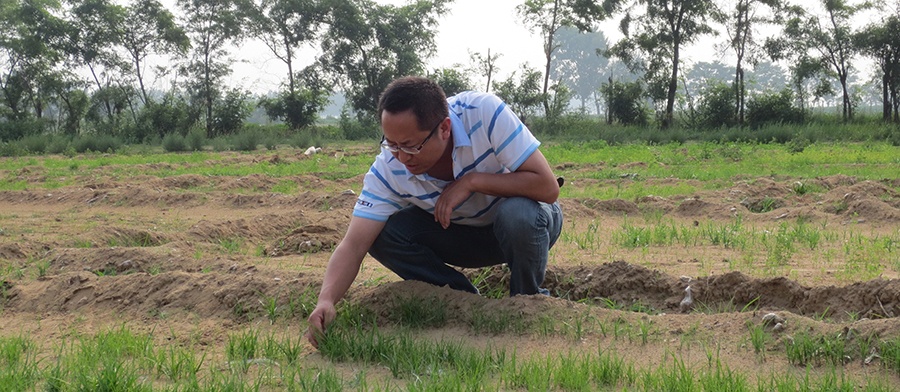Professor Weifeng Zhang from the China Agricultural University in Beijing has been awarded the International Fertilizer Association’s Norman Borlaug Award for steering China towards smarter fertilizer use while also improving productivity.
At the turn of the century China faced one of its biggest challenges: how to feed a growing, increasingly urbanized population on less land.
The country’s food security relies on its 200 million smallholder farmers. Any hopes of China sustainably feeding itself relies on ensuring that they have all the right tools at their disposal to become more productive and efficient.
This year’s International Fertilizer Association’s Norman Borlaug Award winner, Professor Weifeng Zhang, has been an instrumental part of achieving this goal.
He has been a driving force behind several initiatives and government policies in recent years that have bolstered China’s ability to feed a growing population, while also reducing the environmental impact of more intensive farming.
This forward thinking has played a significant part in China’s ongoing development, which has already seen 800 million people lifted out of poverty and 155 million people spared from hunger and malnutrition since 1990.
His work to transform China’s agriculture has not only helped the country feed itself today, but also tomorrow.
“Under China’s economic reforms of the past 40 years, agriculture has swiftly stepped up to the challenge of feeding the country. The fresh objective of the last few years has been to find a way to continue to do so in a more efficient, more sustainable way,” said Prof. Zhang.
“This has involved a huge joint effort involving the government, industry and research institutes, and I’m delighted our work has been recognised with this award,” he added.
The national fertilizer database
With fertilizer use efficiency as low as 27 per cent in China at the turn of the century, poor nutrient management and productivity yield gaps had to be addressed.
Prof. Zhang’s research inspired several initiatives and government policies and reforms, bolstering China’s ability to feed its growing population, while also reducing the environmental impact of more intensive farming.
He helped to develop a national fertilizer database, which identified inefficiencies in fertilizer use. It also helped the government recognise that farmers were applying more mineral fertilizer than was effective, leading to diminished returns and putting additional strain on the environment.
In light of Prof. Zhang’s findings, the government introduced a “zero growth by 2020” policy for fertilizer use, while also reviewing public subsidies for farmers. The zero growth target was achieved by 2017, well ahead of schedule.
Adopting best scientific practices
To complement the national fertilizer database, Prof. Zhang helped China to also establish the Science and Technology Backyard initiative, which has helped promote cutting edge agricultural science. Agricultural scientists spend up to eight months of the year living in villages with farmers to help train them in best practices, including proper nutrient management.
This initiative identified 10 factors contributing to a yield gap, including poor fertilizer management, and helped shape a series of corrective measures. This led to an increase in nitrogen efficiency of 20 per cent, while farmers were able to achieve up to 97 per cent of their attainable yield, from as low as 67 per cent previously.
Such best management practices are underpinned by the 4R principles of applying the right nutrient source using the right dose at the right time and in the right place. This is highlighted in an industry handbook produced by the International Fertilizer Association (IFA), the World Farmers’ Organisation (WFO) and the Global Alliance for Climate-Smart Agriculture (GACSA), which has also been translated into Chinese and is distributed to thousands of farmers and farm advisors.
Prof Zhang’s vision utilised a science-led approach to agriculture and leveraged community-based interventions to embed best practice among smallholder farmers. He helped to galvanise the state not only as a regulator and policymaker, but as an educator and community facilitator.
This helped ensure that his vision was instilled among smallholder farmers across China while equipping them with the right tools and science to boost their yields.
A blueprint for green success
By successfully helping China find the tools needed to maximise agricultural efficiency and close productivity gaps, Prof Zhang has given China, and the world, a roadmap for countries to adopt and scale up.
With global food security and climate change presenting an ongoing challenge, China can do yet more to make agriculture more sustainable. If these partnerships which Prof Zhang helped develop remain, it is a strong foundation on which to build greater resilience against the climate shocks that the country’s farmers will face.
Prof Zhang’s science-based approach to help agriculture become constantly smarter will help not only China adapt to changing climates and a growing, urbanised population, but can benefit the rest of the world as well.



